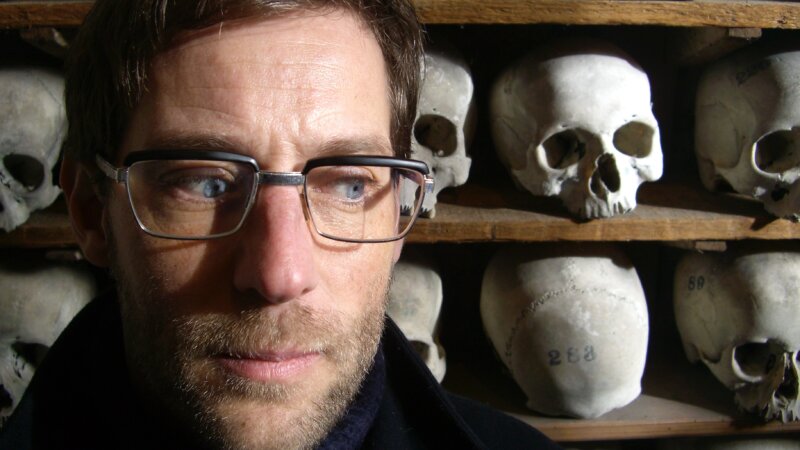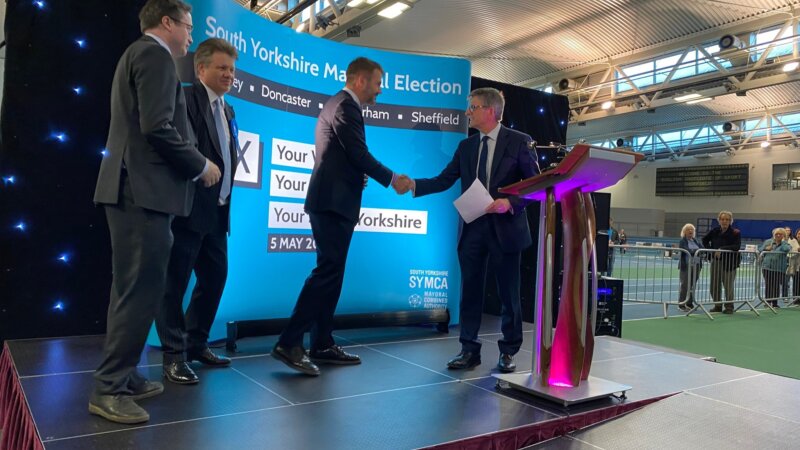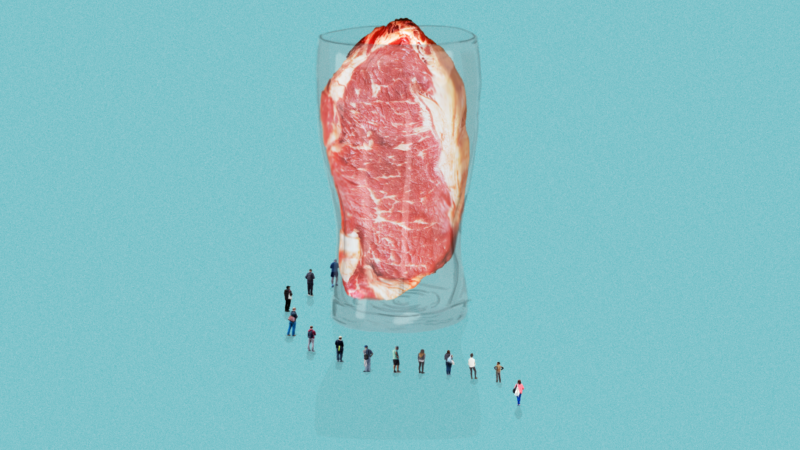Tycho: Wide Awake
For a long time Scott Hansen was better known for his design work as ISO50 than his music as Tycho, but four years ago he decided to expand his live set up from solo laptop troubadour to a full band and his ambient, instrumental soundscapes have been increasing in popularity ever since. His roots as a designer remain key to his music, with distinctive album covers and live projections adding to the overall experience.
Scott spoke to me about graphic designers, crowd funding and touring from the other end of an online phone call to San Francisco.
You can see how your art and music are created by the same person. Does one ever reflect or influence the other directly?
Obviously they’re informed by each other on some levels. They’re both kind of within the same ideas so it’s like two sides of the same coin. But the visuals do come second so, if anything’s informing the other, it’s the music pushing the visuals.
Would you say that’s the same with your projected visuals at your shows?
I think more so. The album covers are there to lead things in a certain direction and not necessarily to echo any specific sentiments of the music. They’re more to target in one direction or another. Because the music is instrumental, there aren’t any lyrics to give meaning, so I feel the visual element is needed to anchor the performance. This project’s always been an audio-visual project so I’ve wanted this to reinforce what’s going on with the performance and the music.
So you’d avoid performing in a dark room where people can’t see anything?
We’ve done that before when sometimes we can’t have visuals and we’ve had to play the show without them, but I think it adds a lot. It’s part of the project, for me. They’re inseparable. I don’t think the whole story’s being told unless you have that visual element because that’s just how I’ve always seen this project.
Your first full band show in the UK was crowd funded via Songkick. What was your experience of that?
I’m not really up on the economics of the whole thing, but the show definitely wasn’t something on our radar until that came about. It’s not like we had the opportunity to play there otherwise, so from our perspective it seemed like a great way to go about it. It measures the demand that’s built in, you don’t have to gamble on anything because it’s pretty expensive to mount tours overseas for US bands and, I’m sure, vice versa.
About crowd funding in general, do you think we see a more democratic music industry these days, with the advent of that and the internet?
From my perspective, the music industry has definitely become more democratic based on the ability to have this distribution and promotional reach as an individual, instead of having to rely on an organisation to pick you up and do all that. As part of the crowd funding and people using Kickstarter to fund albums, it does seem like if you can build an audience then you can fund your own records if are technically savvy enough to be working with those platforms.
Did you find that the same people who liked your art and design also liked your music?
Absolutely. A big part of our original appeal and demographic seemed to be computer professionals – graphic designers and programmers, people like that. That was the world that I had access to through the blog and computer design work. So that was the platform we used to launch it to a more mixed group of people. The shows are now a typical kind of concert, whereas before it felt more like a convention type of thing. It seemed like everyone there was a designer or doing something in the industry, so it was always funny how we had a room full of people who had similar interests. It was kind of neat to have that, but you can’t scale that. You’re going to be playing 300 person shows for the rest of your life, because there just aren’t enough of those people out there. So it’s grown from that, but that was definitely our core and the launchpad for everything.
How has Ghostly International helped you to progress your music in recent years?
If I was to put a line in the sand where I think my professional music career started, then even before that I was with Ghostly, so they are pretty much all I have ever known and have been super supportive. They really seem to understand what I’m trying to do and they let their artists go and do what they’re best at and stay out of their hair. So it’s been a great home to work from because it’s pretty effortless in the relationship and they really helped me get to where I wanted to be as an artist.
One of your label mates is Matthew Dear, who went along a similar path from solo to full band. Was his path an influence at all?
We were already doing the band thing before I became aware of that. I think he was a DJ back then, and then I saw he was doing the band thing, but it seemed like at that time there was this movement of indie electronic bands adding at least some sort of live element to their show. It was just a natural progression as bands realised that what people want from a live show isn’t necessarily a direct representation of how the music was made. If you’re just making it on a laptop at home, they want to see it from a different perspective, so you saw a lot of bands evolving into these multi-piece bands, like Toro Y Moi and Com Truise, who had a drummer.
How does touring with the full band differ?
It’s intense, but it’s infinitely more fulfilling for me. I didn’t really enjoy the laptop thing that much. I didn’t feel like that fitted my character. There are people who could pull that off and create a compelling show with stage presence, but I’m not one of those people so, for me, having friends and collaborators makes it a much more enjoyable experience. The logistics of the whole thing is something I’d never really thought out. Every time we go out now it takes a lot of planning and execution. It’s worth it – it’s fun and it’s a challenge – but it’s definitely not the same as packing up your laptop and headphones in a backpack.
I was in a bar in Lyon in France recently and heard one of your songs on the stereo. Which cities on this side of the Atlantic have tended to show you the most support?
London is always strong for us. Paris last time was a great show. Berlin was good. But the thing is we’ve only played the big cities over there. This is the first time we will have tested out places we haven’t been yet, so I really don’t know because in a few of those cities we’ve been to, we’ve developed a kind of base there, but it will be interesting to see, like in Manchester for example, if anyone even shows up! But it’s always an interesting thing each night to watch the place either fill up or not. So we’ll see how it goes.
Is there any musician, alive or dead, who you’d like to have a chat with?
There’s lots of them, but if I could talk shop then obviously Boards of Canada would be the people I’d want to talk to most, just to talk about process and how they made some of their stuff. They’re the most interesting to me from a sonic perspective.
tychomusic.com
blog.iso50.com
)







